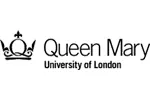About Bioinformatics, MSc - at Queen Mary, University of London (QMUL)
Course descriptionThis MSc programme is intended for graduates of both biological sciences and computer-related subjects (including physics and mathematics) who want to convert to Bioinformatics.
Bioinformatics is an important and fastdeveloping interdisciplinary field, combining biomedical and computer sciences. We are witnessing a huge growth in biological data driven by high-throughput experimental methods, such as those used in the human genome project. The volume of data makes the use of computational methods vital for identifying gene function and regulation, uncovering the structure and function of biomolecules and many other problems. Great opportunities exist for suitably qualified people both within the pharmaceutical and biotech industries, and in research.
The course is designed for students from two different types of background, and will provide essential training in the other disciplines required in Bioinformatics.
Students with:A biological background will develop practical programming ability and a more formal understanding of computer science
A physical sciences/computing background learn essential concepts of the organisation of genetic information and how the genetic blueprint is implemented to exist as a fully functioning organism.
The programme provides training in a broad range of cutting-edge methods used in the analysis of biological data, exploiting research expertise within the School of Medicine and Dentistry, the School of Biological and Chemical Sciences and the Department of Computer Science.
You will gain experience with concepts in software design and implementation in the context of molecular biology, together with an understanding of the theoretical framework that underpins some of the commonly used methods of analysis. Project work on the course involves application of these principles and techniques to biological data analysis.
Career opportunitiesBioinformatics, is one of the fastest growing disciplines. A degree in Bioinformatics can open up a rewarding career in the biotechnology industry, or work in pharmaceutical development, drug discovery, forensics, or environmental and ecological research.
Course contentCore modules:Research Methods for Bioinformatics (double module)
MSc Project.
Study options include:Advanced Database Systems and Technologies
Advanced Program Design (in Java)
Algorithms and complexity
Computational Genomics
Database Systems
Functional Genomics
Genes and Bioinformatics
Genomics
Heredity and Gene Action
IT Programming (double module)
Software Engineering
Software Risk Assessment
Systems Analysis
The Semantic Web
Transmission Genetics
XML and Structured Information.
Entry requirementsIf you are applying for one of our advanced Masters programmes, you should normally possess (or shortly expect to obtain) a good Honours degree (minimum 2.1) with a substantial computer science component (at
least half) or equivalent industrial experience. You should also have good programming skills for undertaking the practical elements of the course.
For our conversion MSc Computing and Information Systems programme, you will need to hold a first degree in a subject not related to computer science, or a degree with less than 50 per cent of the modules in computer science subjects. We require a minimum of a 2.1 honours degree classification, and we normally look for a Grade Point Average (GPA) of greater than 3.2. We also need evidence of mathematical ability equivalent to UK GCSE grade B.
For our MSc Bioinformatics programme, you must hold a good first degree with a minimum 2.1 classification. There are two entry routes:
You may have a first degree in biological sciences (including a strong component of genetics, molecular biology, biochemistry or similar discipline). Some exposure to programming is useful; alternatively you should be able to show some mathematical aptitude.
You may have a first degree in mathematics, a physical science or computer science. You should be a capable programmer.
For the MSc stream of our MSc/MA Digital Performance course, a 2.1 class honours degree with a significant programming component will be required. For the MA stream a 2.1 class honours degree in Drama/Performance or a cognate discipline will be required.
For overseas students we also require English language qualifications IELTS 6.5, TOEFL (CBT) 237 or TOEFL (written test) 575.


